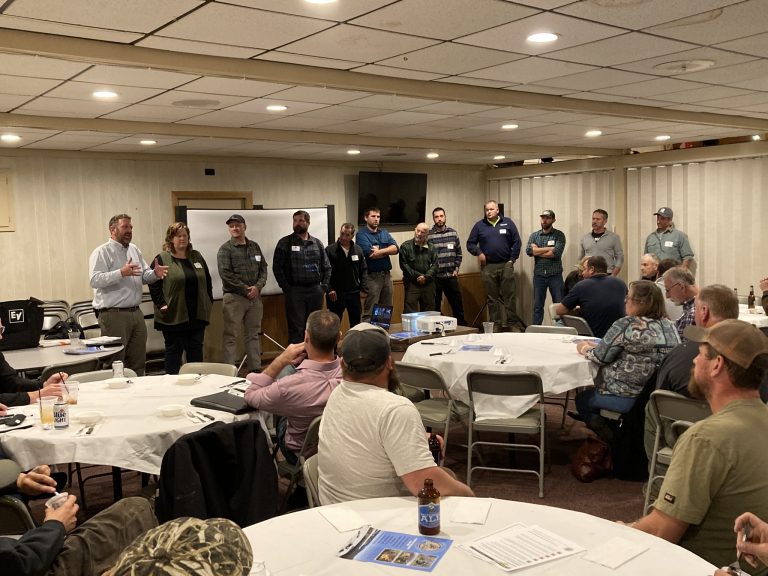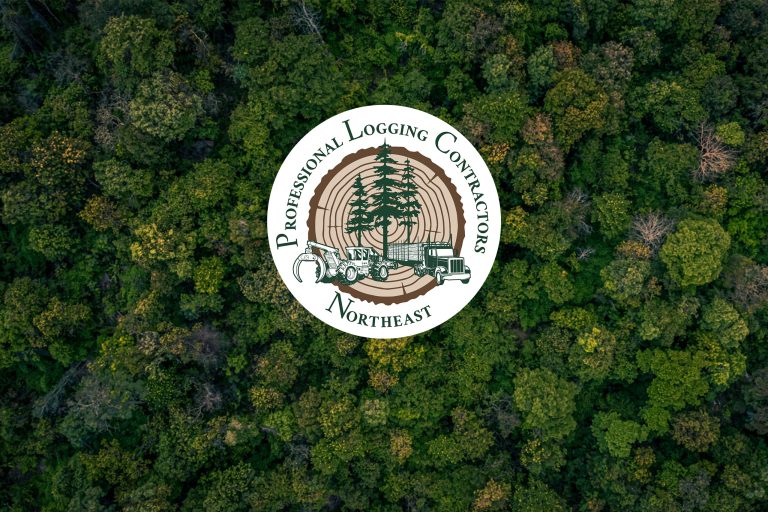Professional Logging Contractors of the Northeast Applauds Maine Congressional Delegation for Supporting Loggers
AUGUSTA, ME – The Professional Logging Contractors of the Northeast (PLC) are thankful for the support from Maine’s Congressional Delegation in sponsoring new legislation to provide relief to loggers in Maine, and across the country.
On Wednesday morning, Congressman Jared Golden (ME-02), Senator Susan Collins (R-ME), Senator Angus King (I-ME) and Congresswoman Chellie Pingree (ME-01) introduced the Loggers Economic Assistance and Relief Act in the House and the Senate. The legislation would establish a new program within the US Department of Agriculture to assist loggers who have lost income due to natural disasters.
The Loggers Economic Assistance and Relief Act, which is similar the successful Pandemic Assistance for Timber Harvesters and Haulers (PATHH) program from 2021, will help the logging community weather the storm of recent natural disasters ranging from wildfires, to flooding, to droughts that have been wreaking havoc across the United States. Timber harvesting and hauling businesses that experience a gross revenue loss of at least 10%, will be eligible to apply to receive loss of income assistance. The determination of revenue loss would be calculated by comparing income to the previous year’s gross income.
“Currently, there are no programs that help assist loggers with natural disasters,” Dana Doran, Executive Director of the Professional Logging Contractors of the Northeast said. “After a terribly wet summer and two consecutive warm winters, The Loggers Economic Assistance and Relief Act could provide a lifeline for loggers and forest truckers in Maine that have faced significant obstacles due to extreme weather conditions interrupting their work.”
A PLC survey conducted in Maine shortly after the severe December 18,2023 storm, revealed estimated total financial losses exceeding $2.6 million, and about $51,000 per member company surveyed. The survey included responses from more than 50 logging and forest trucking companies ranging in size from one employee to nearly 100. Applying a multiplier for the industry utilized by the University of Maine and the Margaret Chase Smith Policy Center in a recent logging economic impact study for Maine, the total loss to the Maine economy just from the impacts on this group of companies is more than $5.5 million.
“Loggers have faced a series of unrelenting challenges in recent years, and uneven access to disaster assistance is among the most artificial,”said Golden, who authored the legislation. “These businesses are pillars for some of Maine’s most rural communities, and we simply cannot afford to lose them. Protecting these jobs ensures that future generations can continue to make a consistent living in the woods. I’m grateful to have so many of my colleagues join this important effort.”
Maine is not the only Northeast state where loggers are experiencing weather related losses. In neighboring Vermont, losses from severe storms and flooding have also been extensive. Meanwhile unusually warm winters and rainy conditions are wreaking havoc on the logging industry across the entire region. Persistently rainy conditions have made many forested areas too wet to harvest and required time consuming and expensive efforts on the part of logging contractors to protect water quality and soils in others. The lack of deeply frozen ground in the winters is having a chilling effect on operations and profitability.
“Throughout Maine’s history, our forest products industry has supported good-paying jobs, driven local economies and strengthened rural communities,” said Senator Collins. “Loggers were already facing significant headwinds due to a changing 21st century economy and recent price instability, and the recent damaging storms only compounded those challenges. This bipartisan legislation would provide much-needed financial support to loggers who have suffered losses as a result of natural disasters.”
“Logging has been fundamental to the success of our state for centuries — creating good jobs, supporting working families and providing essential economic activity across rural areas,” said Senator King. “The Loggers Economic Assistance and Relief Act would ensure that any disaster declaration by the President or Maine’s governor would unlock federal disaster assistance eligibility for these critical Maine businesses. As a new generation of Maine people consider careers in logging, and as we see the catastrophic impacts of these storms, this bill will ensure that the logging industry remains a stable source of income — and our state’s culture — for generations to come.”
“The logging industry is a critical pillar of Maine’s economy and history, supporting jobs and rural communities for centuries. Several recent devastating storms in our state highlighted the urgent need to address gaps in our federal disaster response and support for loggers,” said Pingree, a member of the House Agriculture Committee. “By establishing a new program within the Department of Agriculture to support loggers facing losses due to natural disasters, our bipartisan, bicameral Loggers Economic Assistance and Relief Act will help this vital industry survive whatever future storms or challenges may come.”
“Protecting forest health, infrastructure, and water quality are things that benefit all citizens in the Northeast, yet in many cases logging contractors are bearing the full cost of hardening log landings, installing additional culverts, repairing logging roads and bridges, and undertaking sediment control efforts,” Doran said. “We need to provide relief to the industry by reducing their costs while there is still time to help, because losses are mounting quickly.”
Maine’s loggers are a vital part of the state’s forest products sector, which is worth an estimated $7.7 billion annually. Logging contributed an estimated $582 million to the state economy in 2021. Founded by loggers who were concerned about the future of the logging and forest trucking industry, the PLC has grown steadily to become a regional trade association which provides independent logging contractors and truckers in the Northeast a voice in the rapidly changing forest products industry. Board membership consists of only loggers, making it an organization that is run by loggers on behalf of loggers.
Learn more about the PLC at www.plcloggers.org



